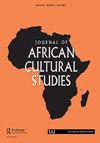为非洲现代性发声:大西洋黑人有声读物如何回击
IF 0.7
2区 社会学
Q2 CULTURAL STUDIES
引用次数: 0
摘要
ABSTRACT 随着有声读物的日益普及和全球录音口语产业的发展,本文强调了声音研究学者和文学评论家重新考虑 "有声读物 "作为口头文学重要形式的重要性的方式。在本文中,我们探讨了佐拉-尼尔-赫斯顿(Zora Neale Hurston)的《巴拉科恩》(Barracoon)和亚-加西(Yaa Gyasi)的《回家》(Homegoing)这两部大西洋黑人文学作品的有声书,在这两部作品中,口头文学的美学深深地扎根其中,并作为新口头文学的形式栩栩如生地展现出来。我们提供了一种 "仔细聆听 "的方法,借鉴了声乐文学研究中的阅读策略,并通过与阿托-奎松、齐齐-贾吉等学者的合作,提出了一种跨学科的方法,来研究非洲和非裔文化作品中的 "双耳 "声音。本文章由计算机程序翻译,如有差异,请以英文原文为准。
Voicing Afro-Modernity: How Black Atlantic Audiobooks Speak Back
ABSTRACT With the growing prevalence of audiobooks and the growth of the recorded spoken-word industry worldwide, this article highlights the ways in which sound studies scholars and literary critics alike can reconsider the importance of the “talking book” as a key form of oral literature. In this article, we explore the audiobooks of Zora Neale Hurston’s Barracoon and Yaa Gyasi’s Homegoing – two key pieces of Black Atlantic literature in which the aesthetics of oral literature are deeply embedded and come alive as forms of new orality. We offer a method of “close listening”, drawing on the tactics of reading in sonic literary studies, and suggest through engagement with the work of scholars such as Ato Quayson, Tsitsi Jaji and others an interdiscursive approach toward “binaural” voices in African and Afrodescendant cultural production.
求助全文
通过发布文献求助,成功后即可免费获取论文全文。
去求助
来源期刊

Journal of African Cultural Studies
Multiple-
CiteScore
1.70
自引率
10.00%
发文量
13
期刊介绍:
The Journal of African Cultural Studies publishes leading scholarship on African culture from inside and outside Africa, with a special commitment to Africa-based authors and to African languages. Our editorial policy encourages an interdisciplinary approach, involving humanities, including environmental humanities. The journal focuses on dimensions of African culture, performance arts, visual arts, music, cinema, the role of the media, the relationship between culture and power, as well as issues within such fields as popular culture in Africa, sociolinguistic topics of cultural interest, and culture and gender. We welcome in particular articles that show evidence of understanding life on the ground, and that demonstrate local knowledge and linguistic competence. We do not publish articles that offer mostly textual analyses of cultural products like novels and films, nor articles that are mostly historical or those based primarily on secondary (such as digital and library) sources. The journal has evolved from the journal African Languages and Cultures, founded in 1988 in the Department of the Languages and Cultures of Africa at the School of Oriental and African Studies, London. From 2019, it is published in association with the International African Institute, London. Journal of African Cultural Studies publishes original research articles. The journal also publishes an occasional Contemporary Conversations section, in which authors respond to current issues. The section has included reviews, interviews and invited response or position papers. We welcome proposals for future Contemporary Conversations themes.
 求助内容:
求助内容: 应助结果提醒方式:
应助结果提醒方式:


